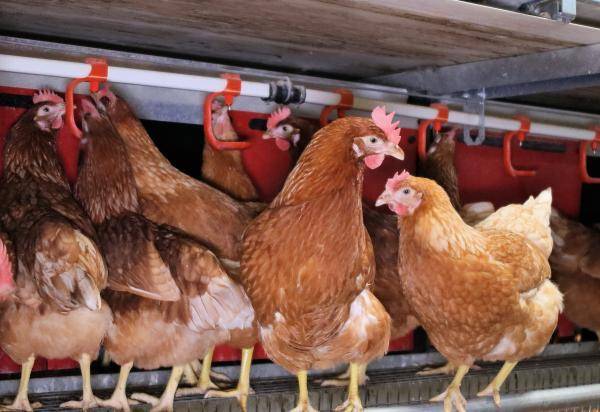In the context of sustainable poultry production, laying hens are kept increasingly longer. However, this extension of the laying cycle is also associated with several challenges such as reduced eggshell quality and poor bone health. Ca metabolism plays an important role in this issue. Optimal Ca absorption from the intestine requires a sufficiently high level of 25-OH vitamin D3 in the blood. This is only possible with the use of a better available form of vitamin D3, in particular Rovimix HyD. Recent research confirms the positive effect of Rovimix Hy.D on Ca metabolism. This results in improved eggshell quality and more saleable eggs. As a result, the yield per hen increases by approximately €0.20.
[written by: A. Vandeweghe]
Recent research by Wang et al. , 2020, shows that supplementation of 69 µg 25-OH-vit D3/kg laying feed results in higher plasma levels of 25-OH-vit D3. An increase in parathyroid hormone was also noted. This leads to improved and increased Ca absorption from the intestine, and increased Ca levels in the blood. The Ca supply via the blood is in line with the Ca requirement and is confirmed by the increased level of calcitonin, which means that less Ca needs to be released from the bones. The reduced level of osteocalcin indicates that there is less turnover (build-up and breakdown) of the bones. This improves bone quality, leading to improved welfare for the laying hens.
Does the increased Ca content in the blood also result in better eggshell formation?
The formation of Ca carbonate requires calcium on the one hand and carbonate on the other. The formation of carbonate takes place in the eggshell gland. This research shows that supplementation with Rovimix Hy.D leads to increased activity of the 'carbonate anhydrase' enzyme, resulting in increased carbonate formation. Given that both calcium and carbonate are present in higher levels, this ensures extra formation of calcium carbonate and thus more and improved eggshell formation.
This scientific research is confirmed by two recent practical trials. A German laying hen trial compared a control group (vitamin D3, no Rovimix Hy.D) with a Hy.D supplemented group during a complete laying round. The laying hens were kept until they were 80 weeks old. Throughout the complete round, the Hy.D supplemented laying hens laid more eggs. The eggs showed increased breaking strength, resulting in fewer broken eggs and fewer second-class eggs. The profitability of the Hy.D supplemented laying hens clearly increased in this trial by €0.20/hen.
This once again confirms the advantage of Rovimix Hy.D in laying hens in terms of eggshell quality. The recommended dosage for rearing hens and laying hens is 1,500 IU vit D3 and 37.5 µg 25-OH-vit D3 per kg of feed.


